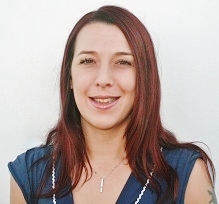 I am continuing this week’s focus on some of my favourite blog posts from the earlier days of Recovery Stories and our online community Wired In To Recovery. I first wrote this blog not long after the launch of our online recovery community.
I am continuing this week’s focus on some of my favourite blog posts from the earlier days of Recovery Stories and our online community Wired In To Recovery. I first wrote this blog not long after the launch of our online recovery community.
‘Last week, the British Medical Journal published a very interesting article on the dynamic spread of happiness in a large social network. This high quality research involved a longitudinal analysis over 20 years of participants in a long-term health study in America (the Framingham Heart Study, see at end of Blog for further details].
The research involved 12,067 individuals who were connected to someone else in this population at some point between 1971 and 2003. Researchers measured happiness by a questionnaire and conducted a complicated statistical analysis of the relationships between people in this large social network.










